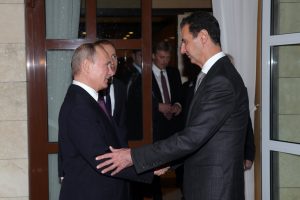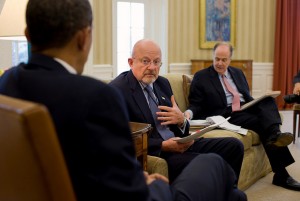Hossein Askari, professor of international business and international affairs at George Washington University, writes in The National Interest that the Obama administration’s focus must shift. Rather than only toughening sanctions on the Iranian economy to halt its nuclear program, it should focus on the government’s human-rights abuses in order for sanctions to work.
He writes (my emphasis):
Sanctions invariably fail to achieve their goal if the majority of citizens in the sanctioned country support the objectionable policy, in this case, Iran’s nuclear-enrichment program. I believe that the majority of Iranians support this policy because of Iran’s isolation during the Iran-Iraq War and the shameful use of Western-supplied chemical weapons on Iranians. Thus, the focus on Iran’s nuclear policy has been doomed from the start. But if the United States shifts its focus to the regime’s human-rights abuses, corruption and failure to deliver economic prosperity, then success becomes more likely. This shift in U.S. policy should be carefully considered because an agreement with an Iranian leadership that had the interests of its people at heart would be much more likely to be honored.
His proposal to gain Iranian popular support of a U.S.-instigated overthrow of the regime is difficult to follow (my emphasis again):
Success can be further enhanced by two additional measures. First, as the central bank of Iran has filled, in part, the void left by the exclusion of its commercial banks from international transactions, sanctioning the central bank would close an important loophole. Second, in view of the recent depreciation of the rial, the United States could adopt one or two simple measures to initiate a run on the currency that could bring Iranians from all walks of life onto the streets to oppose the regime as never before.
It’s possible that collapsing the rial and destroying ordinary Iranian’s savings could bring people to the streets. But it seems extremely short-sighted to assume the Iranian public will jump to bring down their government, given the decades of animus between the United States and Iran that dates to the 1953 overthrow of the democratically elected Mohammad Mossadeq.
In his review of two recent books on the coup, James North wrote on Mondoweiss about how economic warfare, starting in 1951, was used to undermine Mossadeq’s government.
North wrote:
Mossadeq’s government fell mainly because the British had imposed a worldwide boycott of Iranian oil starting back in 1951, and British warships blocked exports. Most of the third world was still under formal colonial rule then, so Iran had to stand alone. Economic warfare, not the cunning Kermit Roosevelt outfoxing flustered and foolish Iranians, was decisive.
So while it’s possible that a strategy of economic warfare that would wipe out the country’s banks and destroys the currency could bring the Iranian public around to the United State’s side. More likely, they have a greater sense of history than Askari gives credit, and would consider such a plan a disaster.





That anyone suggests that the US government campaigns against another country on the basis of that country’s human rights record beggars believe. It is so hypocritical that it suggests that that person is either severely brain damaged or a moron (or perhaps both!).